Tesla Kills Its Flagship Cars to Build Robots That Don't Work Yet
Tesla discontinuing flagship vehicles to build Optimus robots. Musk admits zero robots doing useful work despite promising thousands. $20B capex plans.
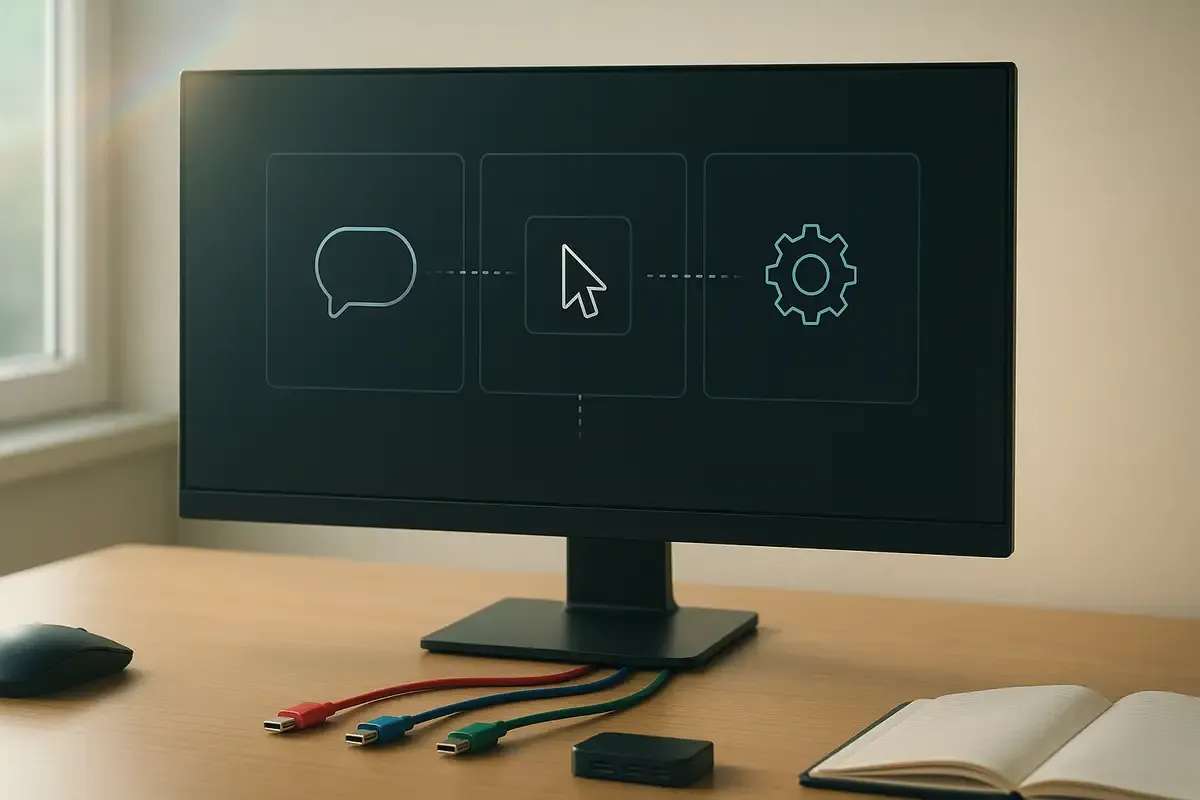
Good Morning from San Francisco,
Opera wants $20 monthly to babysit three AI bots that can't talk to each other. You pick which one handles your task, then supervise as they hallucinate comment counts or add funeral wreaths to your shopping cart. Chrome and Edge bundle unified AI free. Manual orchestration isn't automation—it's homework with a monthly subscription fee attached.
Meanwhile, Microsoft backs software that makes datacenters sweat less. German startup etalytics raised €16 million to cut cooling energy by 40% without replacing hardware. The pitch: reclaim compute capacity while waiting years for grid upgrades to crawl through utility permitting.
Stay curious,
Marcus Schuler
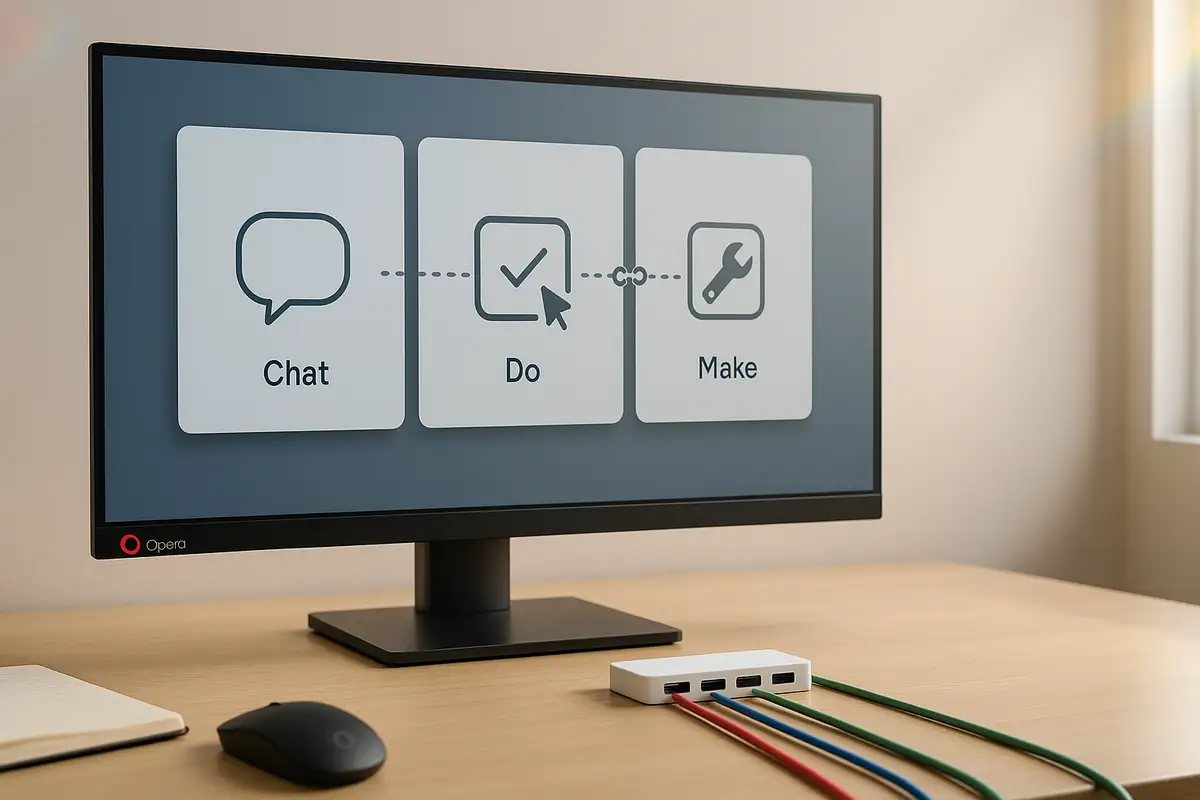
Opera launched Neon in September at $19.90 monthly, packaging three AI agents—Chat, Do, Make—in separate interface zones with no automatic handoff.
Users must choose which bot handles each query before starting, then supervise mid-task without context switching. The Verge documented Chat hallucinating comment counts when clicks were needed (Do's domain), and Do adding funerary wreaths to carts while ignoring user corrections.
The architectural gap matters because Chrome and Edge now bundle unified AI free, Perplexity opened Comet to all users without charge, and Dia ships a free tier. The browser war is a fight for transaction control—whoever owns the entry point captures attention, data flows, and revenue before they route through search layers. That's why OpenAI recruited Chrome veterans and why Google stuffed Gemini into its 74% market-share browser.
Neon charges premium rates for fragmentation. Delegation only scales when it works unsupervised. Manual orchestration between three tools isn't automation—it's additional management overhead.
Why this matters:
• Browser control determines data access, not just convenience—the real competition is over transaction capture and model improvement loops
• Subscription pricing requires reliability advantage over free alternatives; charging $20 for coordination work invites churn to integrated incumbents
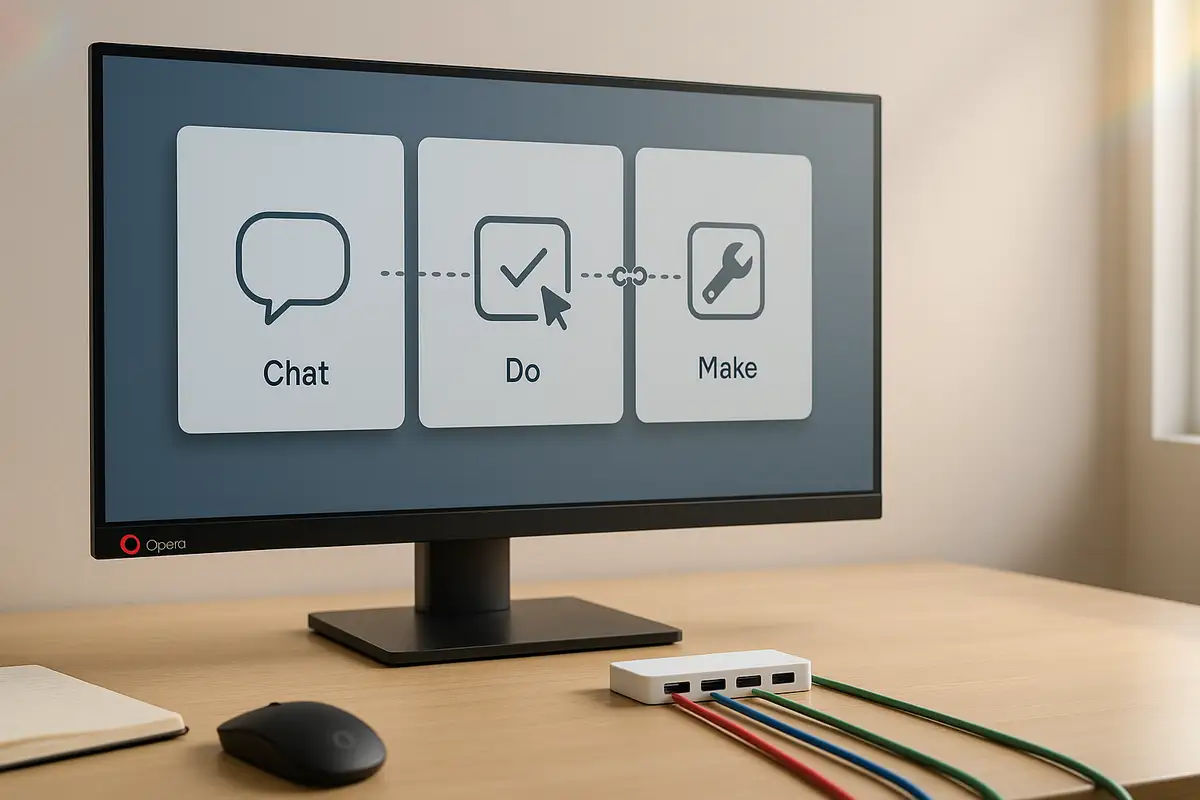

Prompt:
frog wearing a bob hair wig. In the style of a photo studio photograph from 1990s
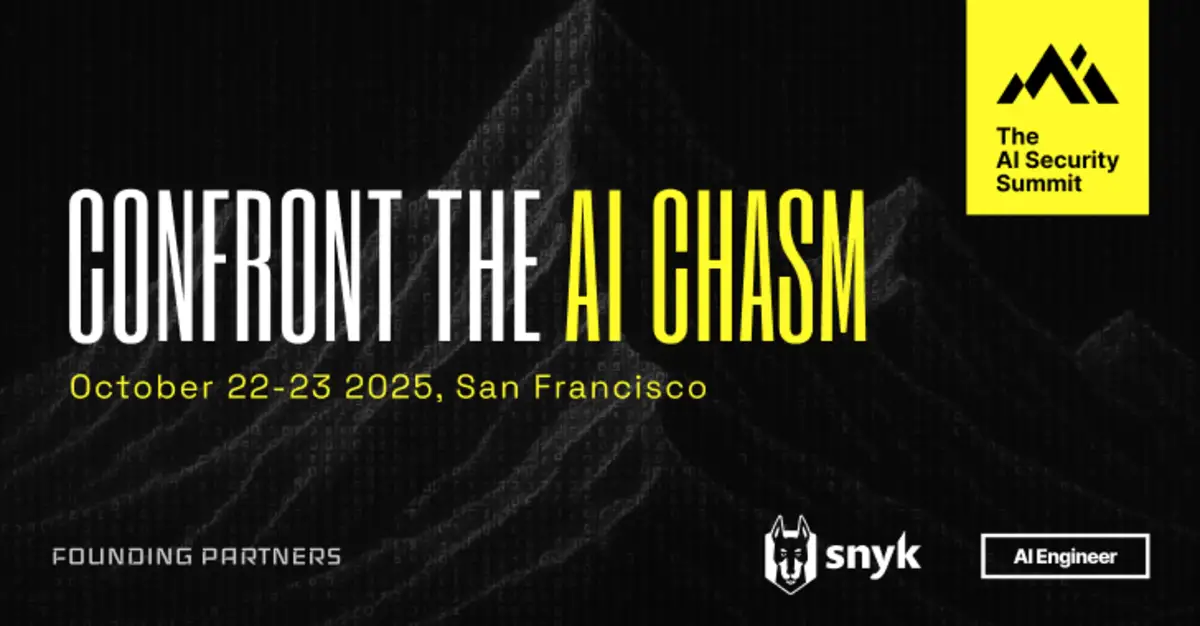
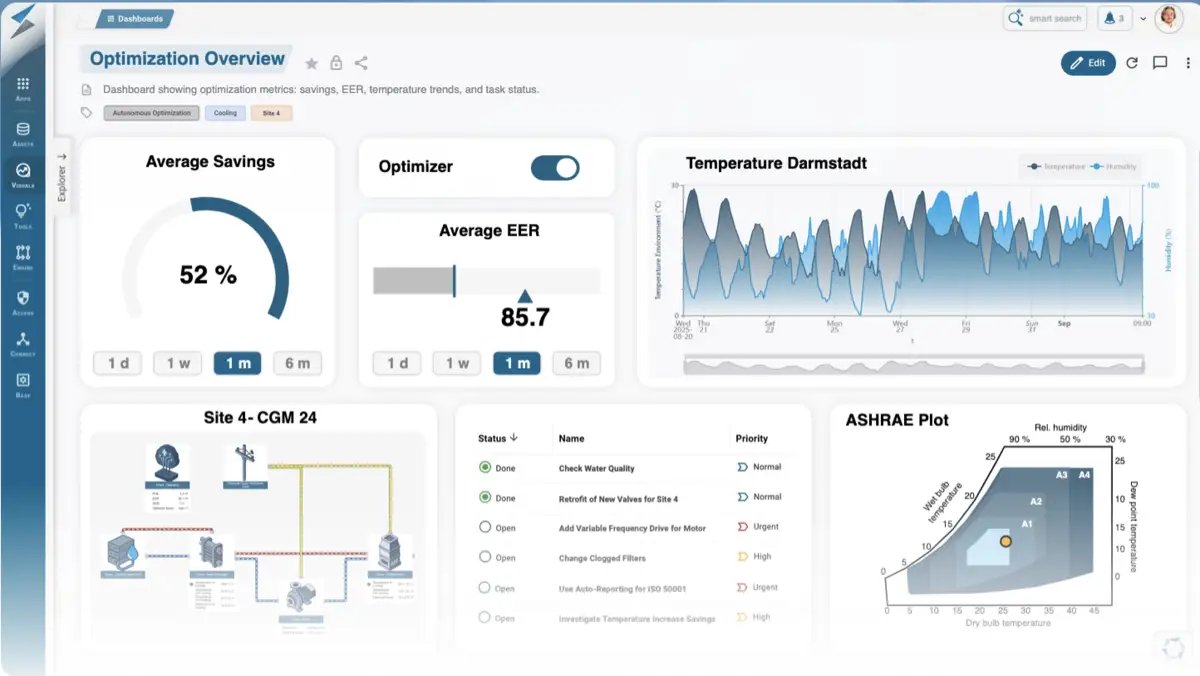
Microsoft's M12 led an €8 million extension to etalytics' Series A, bringing total funding to €16 million.
The Darmstadt company deploys AI to cut datacenter cooling energy 20-40% without hardware replacement—a capacity play as North American operators face years-long grid connection delays.
Etalytics targets the mechanical side: pumps, chillers, heat exchangers that typically consume 40-50% of facility infrastructure power. The platform, etaONE, uses hybrid AI—physics models plus machine learning—to optimize setpoints in real time. Customers include Equinix, Digital Realty, NTT, Volkswagen, and Merck.
The investment centers on North American expansion. Etalytics opens a Bay Area office in 2025, with pilots already running at major US datacenter operators.
From Microsoft's angle, the software addresses enterprise customer pressure on efficiency and carbon accounting while hedging Azure's own thermal management costs.
For operators, it's a bridge technology: software deployed in weeks buys compute headroom while substation upgrades crawl forward over 3-5 year timelines.
Why this matters:
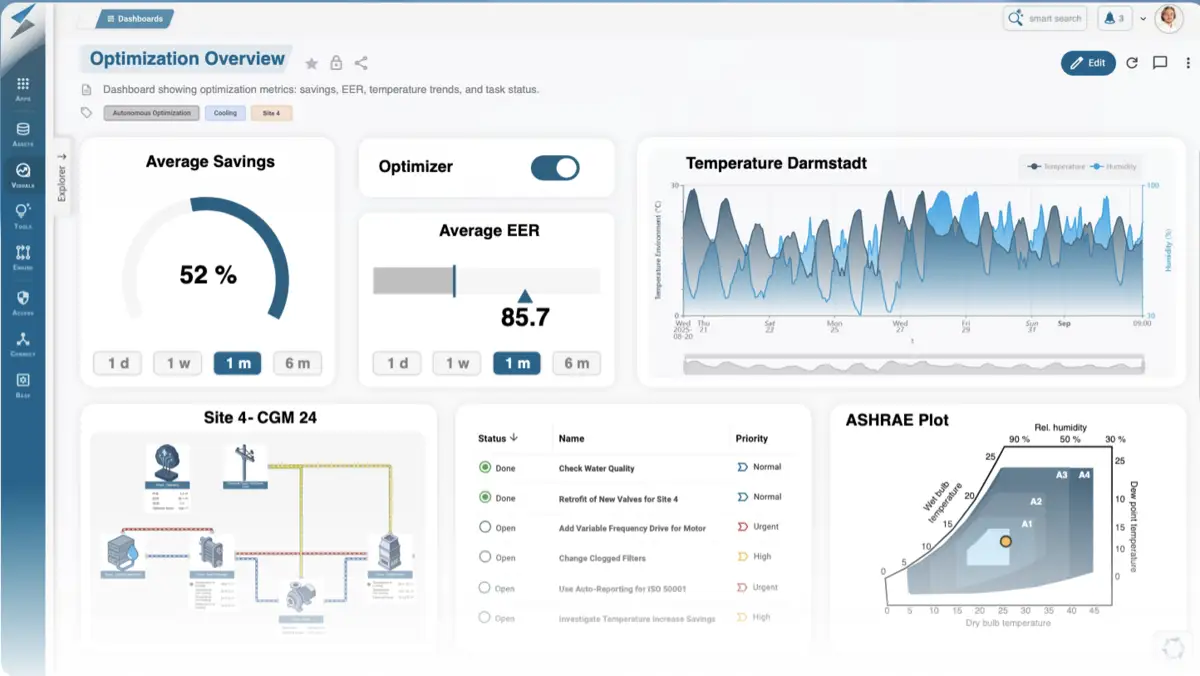

Arcads transforms your text scripts into video ads using AI actors. Choose from hundreds of realistic AI actors to create engaging video content without filming or hiring talent. Generate multiple ad variations quickly to test what works best for your campaigns.
Tutorial:
Write a meeting invitation for [topic]. Include [attendees/roles].
The invitation should have:
Meeting purpose
Agenda items
What attendees should prepare
Expected outcomes
Format it as a calendar invite.
Amazon Web Services experienced a significant outage starting at 3:11 AM ET that affected its US-EAST-1 region, disrupting popular services including Alexa, Fortnite, and Snapchat. AWS has confirmed that the underlying DNS issue has been fully resolved and most operations have returned to normal functionality, though the root cause of the outage remains unclear.
Katherine Boyle, a partner at Andreessen Horowitz and friend of Vice President JD Vance, has become an increasingly influential figure in Silicon Valley's shift toward defense technology and national security investments. Her views on American technological competitiveness and defense innovation are gaining widespread adoption across the tech industry, marking a significant evolution in Silicon Valley's traditionally commercial-focused investment priorities.
Wikipedia co-founder Jimmy Wales discussed the online encyclopedia's decentralized governance model and the challenges it faces from political pressure and right-wing attacks in a recent New York Times interview. Wales also addressed topics including Elon Musk's criticism of the platform and the importance of protecting Wikipedia's volunteer editor community, as the site continues to serve as one of the world's most influential sources for defining public understanding of information.
Blackstone President Jonathan Gray has revealed that artificial intelligence risk assessment has become the "top of our list" priority when the private equity firm evaluates potential investment deals. According to sources, the firm has already backed away from acquiring companies that are deemed vulnerable to AI disruption, signaling a major shift in how one of the world's largest investment firms approaches deal-making in the current technological landscape.
Alibaba Cloud has announced a breakthrough GPU pooling system called Aegaeon that reportedly reduces the number of required Nvidia H20 chips by 82% when serving dozens of large language models with up to 72 billion parameters. The technology represents a significant advancement in AI infrastructure efficiency, potentially allowing companies to dramatically cut hardware costs while maintaining the ability to run multiple sophisticated AI models simultaneously.
John Colgrove, co-founder of data storage company Pure Storage, has achieved billionaire status as artificial intelligence-driven demand for data storage solutions propels the company's stock to unprecedented levels. The Silicon Valley engineer, who established Pure Storage in 2009 after four decades in the tech industry, has watched his company reach a $30 billion market capitalization as AI applications continue to fuel massive data storage requirements across the technology sector.
China has gained overwhelming control of the global rare earth supply chain through a comprehensive strategy involving state support, domestic industry consolidation, and strategic acquisitions of foreign companies including U.S. firm Magnequench. The Wall Street Journal reports that Beijing employed aggressive tactics over multiple decades to establish dominance over these critical minerals essential for electronics, renewable energy systems, and military applications.
A group of 55 Chinese iPhone and iPad users filed an antitrust complaint with China's market regulator on Monday, alleging that Apple abuses its market dominance by restricting app distribution through its App Store practices. The complaint, announced by a lawyer representing the group, targets Apple's control over how applications can be distributed and installed on iOS devices in the Chinese market.
Dutch chipmaker Nexperia has accused its former CEO Zhang Xuezheng of spreading false information claiming the company is now operating independently in China following his dismissal. The semiconductor company alleges Zhang engaged in "unauthorized actions" and disputes his assertions about the operational status of its Chinese division.
London-based medical technology startup CoMind has secured $60 million in Series funding led by Plural, bringing the company's total funding to $102.5 million as it develops a non-invasive brain monitoring device using Lidar-like technology. The British startup is targeting commercial launch of its medical device in 2027, positioning itself at the forefront of next-generation neurological monitoring solutions.

etalytics builds AI that cuts energy waste in data centers and factories. The German startup emerged from TU Darmstadt's research labs and now saves megawatt-hours at sites where cooling bills run into millions.
The Founders
Founded 2020 in Darmstadt by three engineers: Dr.-Ing. Niklas Panten (CEO), Dr.-Ing. Thomas Weber (CSO), and Björn König (CTO). The team grew out of the ETA-Fabrik—a living lab where they spent years tuning industrial energy systems. Now 60+ people strong. They picked the problem because factories and data centers leak energy through bad coordination between chillers, pumps, and HVAC systems.
The Product
etaONE® connects to industrial equipment, builds digital twins, and adjusts setpoints in real time. It handles cooling, heating, ventilation, storage, and microgrids—all in one system. The platform reads OPC UA, MQTT, Modbus, BACnet. It predicts failures, spots anomalies, and closes control loops autonomously. Equinix Frankfurt: 900 MWh saved per year. Stellantis paint shop: 60% ventilation cut. It works in brutal environments—GPU-dense halls, pharma cleanrooms, automotive paint booths.
The Competition
Phaidra (fresh $50M), Vigilent, EkkoSense compete on cooling AI. Siemens and Schneider bundle optimization into massive BMS upgrades. etalytics wins on vendor neutrality, system-level modeling, and measured outcomes at marquee sites.
Financing
€8M Series A (Nov 2024) led by Alstin Capital. ebm-papst joined as strategic co-lead. Earlier backing from Hesse state fund BMH and Xantaro. Valuation undisclosed.
The Future ★★★★☆
AI workloads spike cooling complexity. Regulations force transparency. etalytics sells both the meter and the brain—and expands as customers move from dashboards to autonomy. The ebm-papst partnership shortens sales cycles. Competitive pressure rises, but the Frankfurt proof points open doors. If they standardize deployments and keep commissioning fast, they'll scale. 🎯
Get the 5-minute Silicon Valley AI briefing, every weekday morning — free.